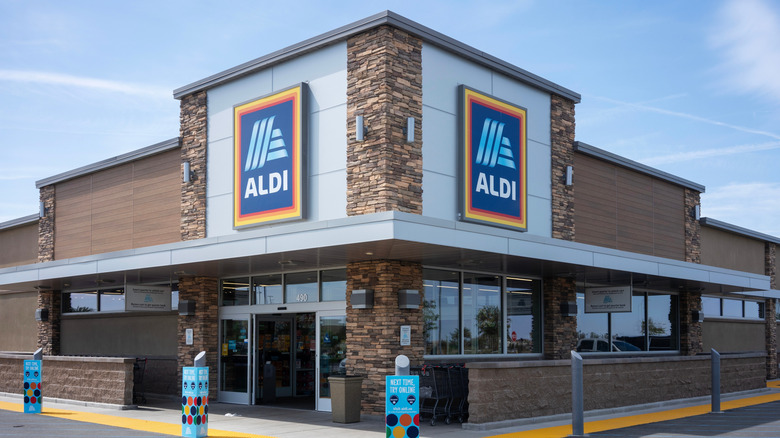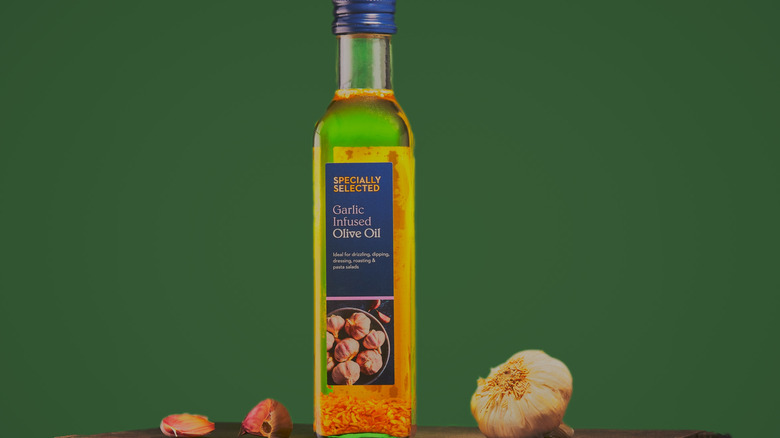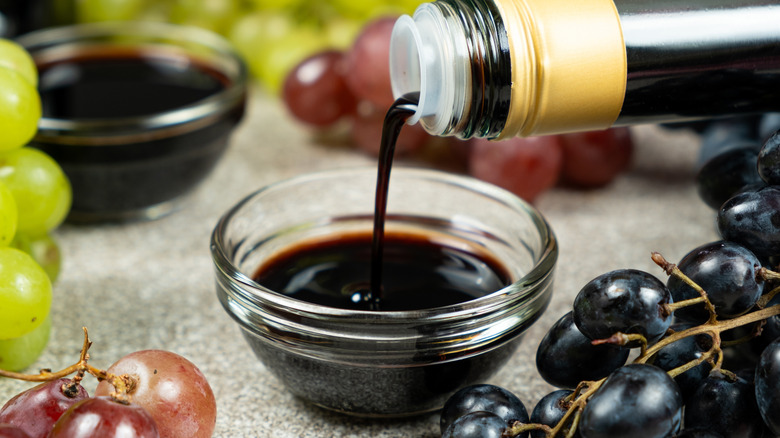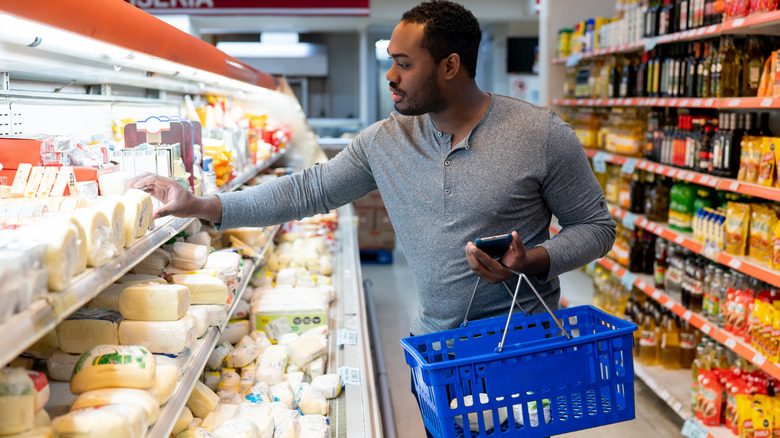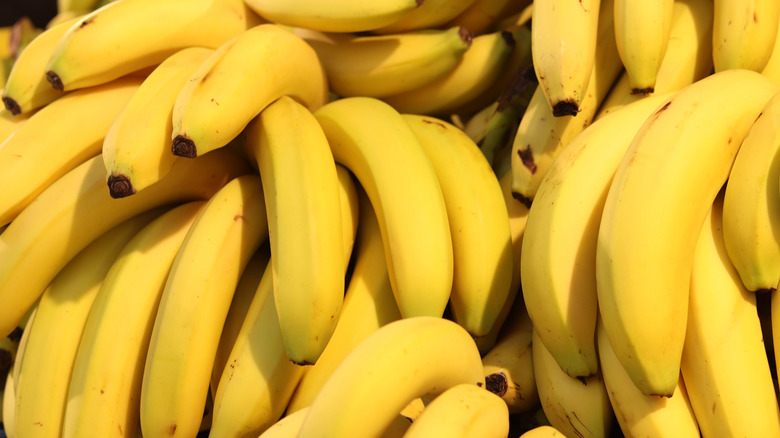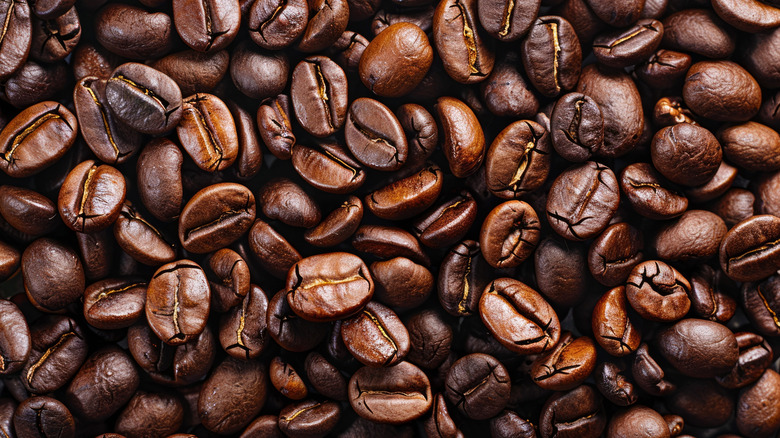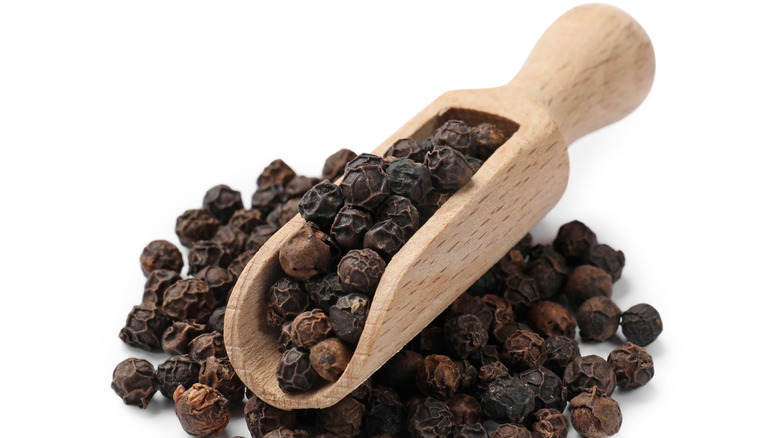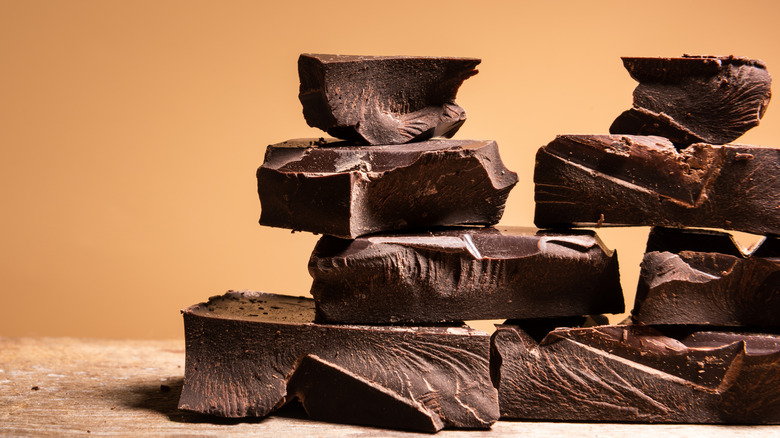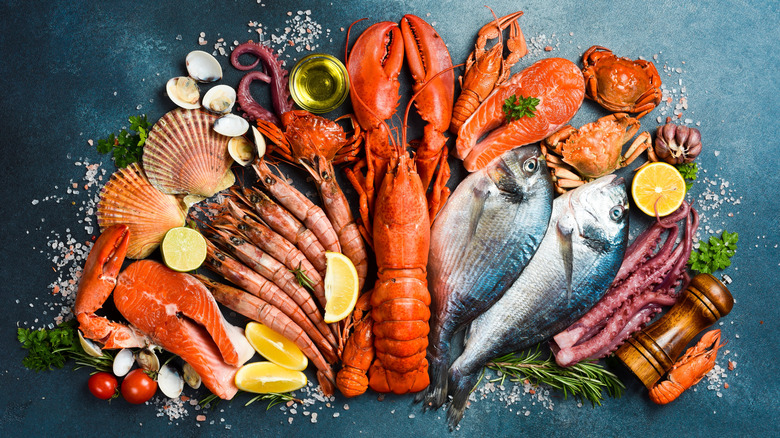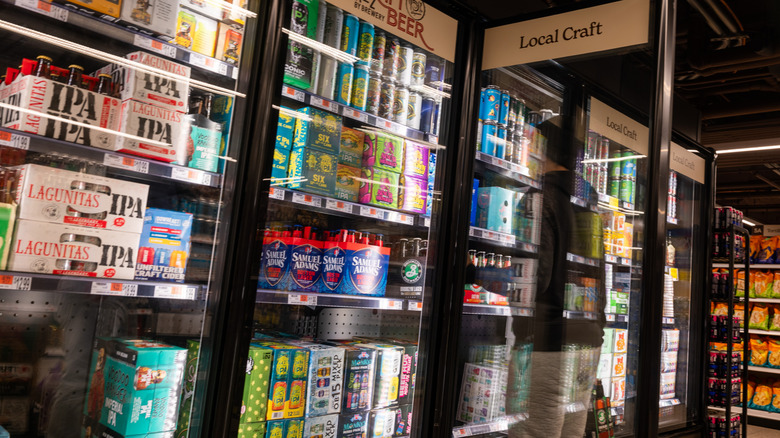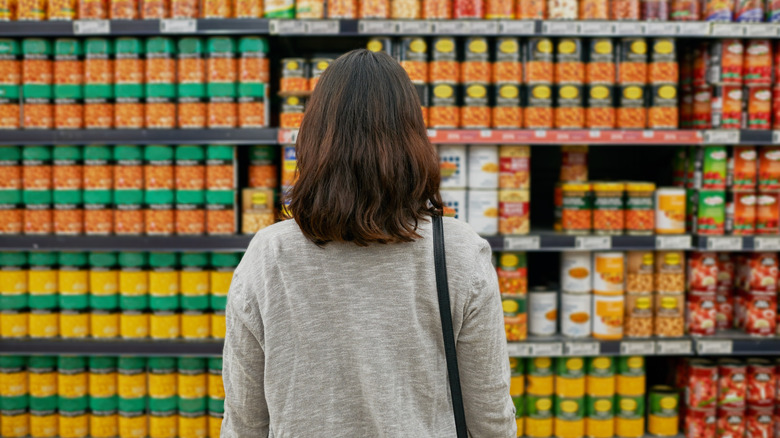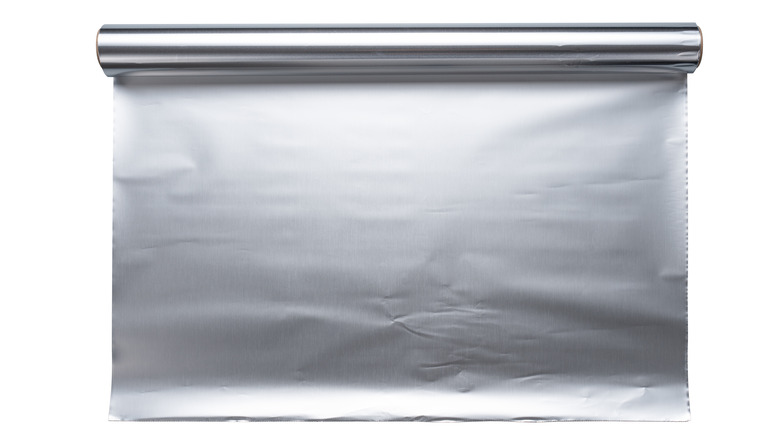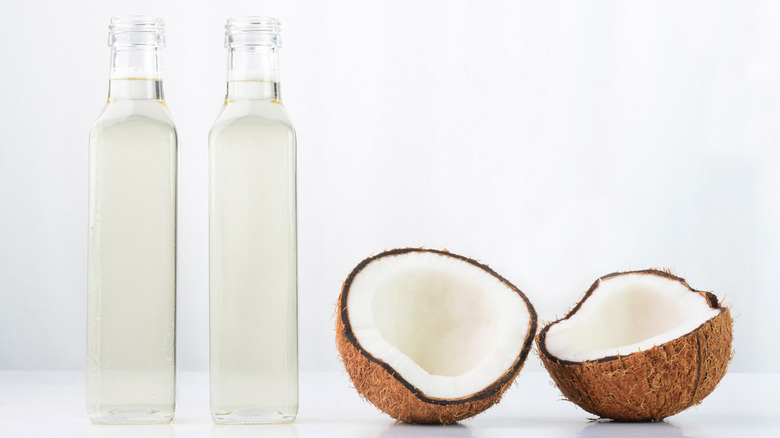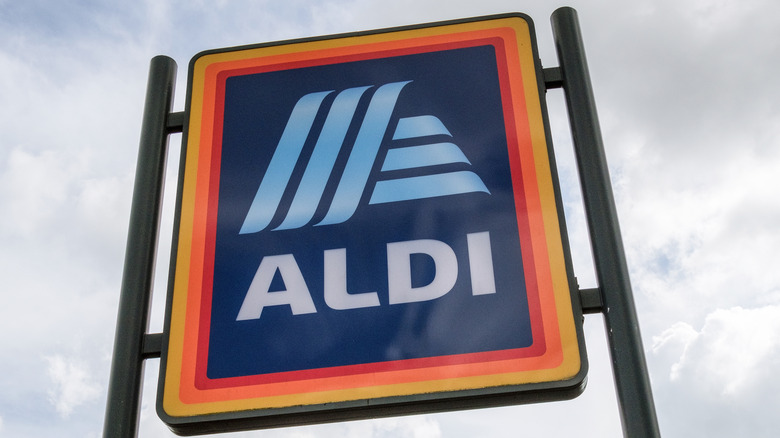13 Aldi Essentials You Should Buy Now Before The Prices Climb
We all have to eat, that's just a simple fact of life. Unless you grow and raise your own food, that means grocery shopping. Variety, quality, and freshness are things people look for in a supermarket. No less important is price.
Feeding a family can be expensive, so seeking out stores with lower prices is a good practice. Many areas have at least two stores from regional chains — and increasingly, there is also an Aldi. Reader's Digest named it the cheapest grocery store in the country in terms of price. Aldi shoppers like the brands it sells, as well — for example, the crispy Aldi cookies that make perfect pie crusts.
Inflation has been on the rise for several years now, and it is expected to hit many items at Aldi. Employees of the chain have warned of increases looming due to tariffs and supply chain problems, and the brand admitted on X that it is sometimes "forced to raise prices." Shoppers on Reddit have also noticed their grocery bills rising. If you are a fan of Aldi, this will be concerning. There are some items you may want to stock up on before the prices get too high — here are 13 popular grocery items to consider buying now.
Olive oil
Olive oil is a versatile everyday item to cook with as well as to make salad dressings and marinades. As a major part of the Mediterranean diet, it contains healthy fats and antioxidants and has several health benefits. The imported extra virgin variety is what many people prefer. Unlike the plastic bottles that Costco's olive oil comes in, Aldi brands use glass, which is much better. It is, however, becoming more pricey, as shoppers on Facebook have noticed in recent months, and is likely to get even more expensive.
Imported olive oil is mainly produced in the Mediterranean nations of Italy, Greece, and Spain. This part of the world has been hit with hotter-than-usual weather and droughts. This affects the trees, which produce a smaller yield than usual.
Additionally, the costs for agricultural supplies and labor have gone up due to inflation. This leads to higher production costs and higher prices. Supply chain disruptions and increased shipping fees further drive up the price. As more people have become aware of the health benefits of olive oil, demand has gone up, and this, too, drives prices higher. Unopened olive oil can last 18 to 24 months, so you may want to grab a few bottles before the price increases any further.
Balsamic vinegar
Balsamic vinegar has so many varied uses in preparing and cooking meals beyond delicious salad dressings, glazes, and marinades. You can use it to macerate fresh fruit, and some people even like balsamic vinegar splashed over vanilla ice cream. It is also good for your health. Studies show that it can help lower cholesterol, aid in weight loss, and improve circulation and skin health. A 2006 review showed that balsamic vinegar is anti-glycemic and can aid people with insulin resistance.
The process for making balsamic vinegar is centuries old. It is made from grape juice that is boiled down and fermented. It is then aged between 12 and 25 years. This alone, contributes to a higher price than other kinds of vinegar.
This ingredient has shown a steady rise in price since 2022. This is due to several factors, including unfavorable weather, increased demand, rising production costs, and tariffs. Lovers of Aldi's balsamic vinegar, whether a regular bottle or the much-loved and very versatile Specially Selected balsamic glaze, should consider stocking up before prices go even higher. Quality brands can last three to five years if stored properly.
Cheese
There are a huge number of varieties and culinary applications for cheese, which can be used in breakfasts, lunches, dinners, snacks, and in some cases, desserts. The dairy product has much of the nutrition of milk, containing calcium, protein, and, depending on type, Vitamin D and other assorted nutrients. And, like most things, cheese prices vary by variety, with the higher quality and imported types generally being more expensive.
The USDA noted that dairy prices, including cheese, rose during the early part of 2025, and they are expected to increase further. On June 1, 2025, new federal milk marketing formulas went into effect and will impact cheese prices. Domestic cheese production has slowed, and more exports are on the market. This, combined with tariffs, is likely to continue to drive prices up.
There are some great cheeses available at Aldi, including the in-house Emporium Selection brand. Soft cheeses have a short shelf life, so stocking up on them is not recommended. However, hard varieties can last up to six months in a refrigerator unopened, so you may want to lay in a bigger supply.
Bananas
Bananas are a great source of potassium, vitamin C, antioxidants, and phytonutrients, plus people just love their mellow, sweet flavor. They are a good snack and can be used raw or cooked in many dishes. As of 2022, Americans were eating an average of 26 pounds of bananas per person per year (per Statista) — that's a lot of bananas to grow and harvest. But the popular fruit does not grow well in most U.S. climates, so bananas must be imported from Latin American countries. More than 90% come from Colombia, Costa Rica, Ecuador, Guatemala, and Honduras.
Tariffs are impacting imported goods of all kinds, and bananas will likely fall victim as well. Increased demand, along with tariffs, will drive prices up. In fact, we might see less of one popular banana brand.
The good news is that bananas can be frozen, and will last about two months. They can then be thawed and used in recipes. Frozen bananas taste sweeter than their countertop counterparts, too, so that's a plus. If you like Aldi bananas, consider stocking up.
Coffee
Americans drink around 400 million cups of coffee a day. How many of us could never get our day started without that first cup of Joe? In addition to its flavor (especially if you're grinding your beans correctly) and ability to perk you up, coffee has some health benefits. Studies have shown that coffee may lower your risk of Alzheimer's and Parkinson's, and reduce your risk of certain cancers, as well as improve skin health. Plenty of good reasons to keep drinking your java. Unfortunately, doing so is likely to cost you more money.
Brazil is a major producer of arabica coffee beans. Dry weather in the areas where beans are grown has negatively impacted the crop and reduced supply. Coupled with excessive tariffs threatened to hit Brazil on August 1, coffee prices are expected to soar — even at Aldi, where some Redditors and shoppers on YouTube have already noticed a steep rise.
Unopened coffee beans sealed in a bag can last six weeks to six months, and properly stored ground coffee can last three months. So stocking up on this Aldi essential item is surely a good idea, whichever variety you prefer.
Black pepper
Even amateur cooks know the importance of salt and its faithful companion, black pepper. The spice has been one of the biggest imports from Asia to the Western world for centuries, and was once used to pay debts. It's not nearly that valuable now, but black pepper remains an essential spice for recipes of all kinds. The weather in Southeast Asia has been unstable with unpredictable cycles of rain and drought. This has reduced black pepper production and affected prices.
Vietnam is the largest supplier of black pepper to the U.S., and India and Brazil are also significant producers of the spice. In addition to the weather problems in Southeast Asia, other peppercorn-growing areas have issues. Farmers in India have been switching over to growing more profitable crops, and Brazil is under the threat of tariffs. This will cause shortages and higher prices.
Stores such as Aldi that sell generic or store-brand spices are expected to experience these shortages first. Since black peppercorns can last three to four years when unopened, stocking your cupboards with an extra supply can help you keep seasoning properly without breaking the bank.
Chocolate
According to Statista, the average American consumes nearly 20 pounds of chocolate per year, placing the U.S. second in the world in chocolate consumption. And why not? Chocolate is good on its own or in all kinds of desserts and some culinary applications. Despite its high calorie and sugar content, dark chocolate does have some surprising health benefits. It contains significant amounts of copper, magnesium, iron, and manganese, as well as antioxidants, and it may help lower blood pressure and the risk of heart disease. Aldi sells some premium chocolate treats for a bargain price — but unfortunately, the cost of chocolate is rising.
The cocoa that chocolate is made from grows in West African nations, mainly Ghana and the Ivory Coast. In 2023 and early 2024, heavy rain in the region created problems with the cocoa crop and reduced production. The area is now experiencing droughts and extreme heat that are further damaging the cocoa crop. As the supply is reduced, prices increase.
Unopened dark chocolate will last about two years, and milk chocolate about one. If you are a chocolate lover, you may want to hit Aldi and stock up on your favorite bars before prices increase.
Seafood
About 90% of Americans eat seafood, and dietary guidelines tend to recommend around two portions of fish per week. Seafood contains protein and omega-3 fatty acids, which are good for heart and brain health, and it is also a good source of Vitamin D. With the many varieties of fish and shellfish, there is an abundance of recipes to suit your taste.
About 80% of seafood sold in the U.S. is imported, primarily from Canada, Chile, India, Indonesia, and Vietnam. Demand for seafood by Americans has steadily increased over the past 30 years. Rising ocean temperatures are making fishing more difficult and reducing the supply. Greater demand and lesser supply are driving prices up.
Seafood will also be affected by tariffs on the nations the U.S. imports it from. This is expected to cause prices to continue to rise. Unfortunately, seafood has a short shelf life: Uncooked seafood will only last a day or two in the refrigerator. However, frozen fish can last three to four months, and frozen shellfish one or two months. This will allow you to do some stocking up on your favorite fish from Aldi, whether that's sockeye salmon, tilapia, or scallops.
Cans of beer
On average, Americans consume over 28 gallons of beer per year. Obviously, drinking alcohol should be kept to moderate levels — however, beer does contain nutrients and also antioxidants. There are plenty of domestic beers, and large companies and microbreweries produce a large quantity of the beverage, which you may believe is exempt from tariffs. But that is not entirely true.
Packaging costs also affect the retail price of food items. Beer cans are made from aluminum. The U.S. imports metals, including aluminum, from Canada. Tariffs have doubled, making it more expensive to produce the cans that beer is sold in. This additional cost is typically passed on to the consumer, so you may find your favorite Aldi IPA or Pilsner getting pricier.
Fortunately, you do have the option of bottled beer at Aldi, too. But if you prefer cans, it's worth noting that unopened beer can last around three months at room temperature. Technically, beer does not expire, but it will lose flavor over time and can go flat. So stock up if you are a can fan.
Canned foods
Canned food is convenient. It's easy to store in a cabinet or pantry, lasts a long time, and is there when you need it. Canned food goes back to the 18th century and had a major impact on the storage of food — it's one of the reasons grocery shopping at stores like Aldi can be a weekly chore rather than going every day. But regardless of the kind of food in the can and where it comes from, canned foods are likely to be impacted by tariffs.
Steel is the metal used to make food cans, and the U.S. imports steel from other nations, primarily Canada. The doubled tariffs are going to increase packaging costs. This will drive prices up, just like with canned beer. One shopper on YouTube has already noticed that prices of canned vegetables at Aldi have increased by several cents in recent weeks.
One of the great features of canned food is its shelf life. It will typically last one or two years in a properly stored, undamaged can. So perhaps head over to Aldi and stock up on your favorite canned foods before they get any dearer.
Aluminum foil
Non-edible items are also of concern when it comes to higher costs. Aluminum foil is a common household product that is found in the vast majority of kitchens, used both as a cooking utensil and a wrap for storage or transporting foods. It's something that's pretty handy to have around. Aluminum foil is made from, well, aluminum. That's obvious. As we have already discovered, the U.S. imports a significant amount of aluminum — much of it from tariff-targeted Canada.
With these tariffs, production costs will be far higher, resulting in greater retail prices at Aldi and elsewhere. Even bargain brands will see higher prices, and mean you are getting less value for your money. Fortunately, since it isn't food, aluminum foil has a pretty much limitless shelf life. So definitely consider stocking up on your favorite brands before the price jumps up to levels that are uncomfortable for your budget.
Toilet Paper
Toilet paper is an item many people take for granted until they need it. Remember the toilet paper shortage during the pandemic? Everyone will agree that it is something you simply must have. Now, you may feel that toilet paper would be a pretty stable product in terms of price. It is manufactured domestically in significant numbers, with numerous brands from which to choose, and we don't have to rely on imports.
However, paper is processed from wood. U.S. imports of forest products have increased in recent years, and Canada is a prime supplier. Tariffs on our northern neighbor will increase production costs and raise prices. Some Redditors have already lamented that Aldi's toilet paper seems thinner and more expensive than it used to be.
Other things used in toilet paper manufacture are imported as well. Eucalyptus fibers add to softness and come from Brazil. Palm oil is used in some brands, and that comes from Indonesia. Tariffs on those nations will further increase production costs, and that means higher prices at the register. Unlike perishable items, keep it dry, and toilet paper will last indefinitely. Head to Aldi and stock up now before the prices go up — you can even get the Willow brand in a massive 32-pack.
Coconut Oil
Purchases of coconut oil have been increasing as people discover its health benefits. It can be used in cooking as well as in several non-food applications. Studies show that when eaten, it may increase fat burning, reduce hunger, boost energy, and it may have microbial properties — although it is high in saturated fats, so you may want to limit your intake.
About 70% of the world's coconut oil supply is produced in Indonesia and the Philippines. These nations have experienced extreme weather in the form of typhoons and droughts, which have reduced production. Another problem is insufficient planting of new trees to replace the older ones. Problems with transportation and logistics are also reducing the amount of coconut oil being shipped. Combine this with a growing demand, and it should be no surprise that coconut oil prices are rising and should continue to do so.
Fortunately, refined coconut oil will last 18 to 36 months, and the virgin variety can last between three and five years. If you use coconut oil, head to your local Aldi and stock up before prices go up.
Methodology
Several different kinds of news, government, and other sources were used for the varying aspects of this article. All are solid and respectable with reputations for accuracy. Local news sources were utilized to verify price increases at Aldi. Regular customers have their fingers on the pulse of the store, so posts on Reddit, Facebook, and YouTube also supplied information. As for the reasons for price increases, we sought information from government agencies, such as NOAA and the USDA, as well as NASDAQ, on issues that have threatened the supply of food items.
Financial sources such as Forbes, CNBC, and BBC News supplied information on tariffs and their expected impact. WebMD, NIH, and Healthline were good sources for the nutritional and health benefits of various foods. We consulted History.com, Icpt.net, and Science.org regarding the history, usage, and consumption of different kinds of food. The shelf lives of the impacted food items came from companies that process and distribute the foods, as well as from reputable cooking sites.
